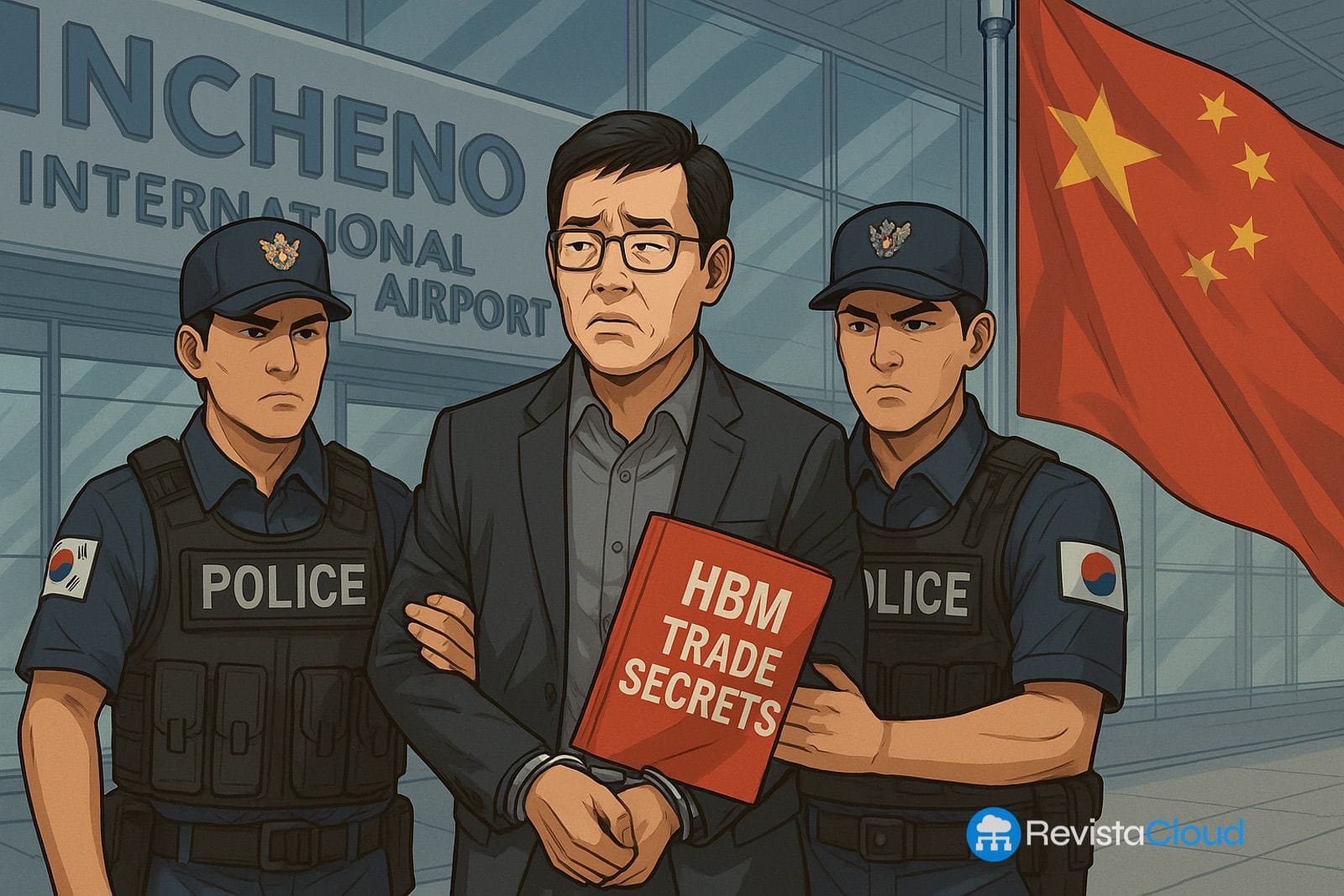Sure! Here’s the translated text:
—
A former subcontractor of the company attempted to sell key information about packaging technologies and next-generation Hybrid Bonding to Huawei and HiSilicon.
The Seoul Metropolitan Police Agency, through its Industrial Technology Security Investigation Unit, has prevented a potentially devastating case for the South Korean semiconductor industry. According to local media, authorities detained a South Korean citizen identified as Mr. Kim at Incheon International Airport just before he could board a flight to China with thousands of confidential images related to HBM (High Bandwidth Memory) developed by SK Hynix.
The material included secrets about advanced packaging and cutting-edge Hybrid Bonding techniques, fundamental technologies in the next generation of HBM that are already intended for companies like NVIDIA. According to the investigation, Mr. Kim intended to offer this information to Chinese companies, including Huawei and its subsidiary HiSilicon, aiming to secure an executive position at one of these firms.
The individual had managed to gather over 11,000 classified images while still being employed as a subcontractor for the firm, erasing watermarks and confidentiality seals before attempting to take them out of the country. SK Hynix confirmed that the seized content corresponded to internal documentation previously deleted from their systems.
The South Korean prosecution has formally charged Mr. Kim with violating the Trade Secrets Act and the Unfair Competition Act, which could result in up to 10 years in prison and a fine of up to $71,000. This punishment is notably lower than the potential value that the stolen information could have held for interested recipients, as experts estimate that China could have saved more than five years of development in critical HBM chip packaging technologies.
This case highlights the increasing technological tension between South Korea and China, especially in strategic sectors like DRAM and HBM memory. In response to previous similar leaks, Seoul has established specialized police units like the one involved in this operation, aiming to safeguard the country’s industrial competitiveness against possible leaks targeting geopolitical rivals.
The South Korean government is already debating the need to tighten regulations to deter future industrial espionage attempts, aware that current penalties may not be sufficient to curb such high-impact economic and strategic crimes.
Source: Digitimes Asia
—
Let me know if you need anything else!

